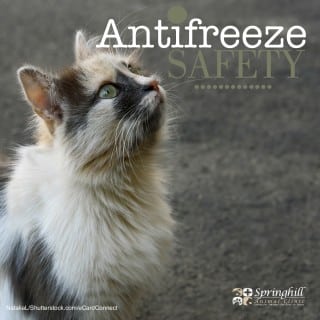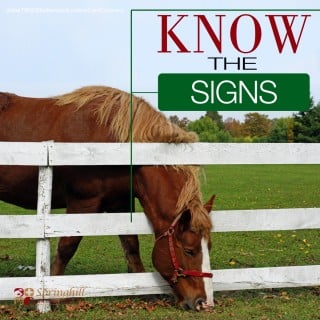Not a disease of healthy adult horses, equine viral arteritis (EVA) can cause an abortion storm in a herd’s pregnant mares and can be fatal to young foals if preventive steps against infection are not taken.
Primarily a respiratory infection, EVA is frequently transmitted through contact with infected nasal particles. Shows, sales and racetracks–or any other areas where horses mingle–are hotspots for potential transmission of the virus. EVA can also be transmitted during breeding. Carrier stallions (stallions who have been exposed to the virus naturally, not through vaccination) can become latent carriers of the virus in their secondary sex organs and transmit it in their semen. Most horses infected with EVA are asymptomatic–they don’t show symptoms of illness–or may exhibit flu-like symptoms for a brief period. Often, horse owners are unaware that their horses are infected until symptoms such as seemingly spontaneous abortions occur in otherwise healthy-appearing mares or until their horses are tested for natural exposure to the virus.
It is important for potential stallions to be certified EVA negative and to be vaccinated prior to breeding regardless of whether it will be a live cover or artificial insemination breeding, as there is no known way to prevent the transmission of the virus in semen. While EVA-positive stallions can be bred, additional precautions must be taken to ensure protection of the mare and her potential foal. While the mare will most likely shed the virus easily and recover, if she is infected with EVA it can be passed to the fetus. Should the fetus become infected with the virus, it depends on the stage in the pregnancy what will happen next. The usual result is that the fetus dies and is aborted, but if the fetus is infected at a late stage in the pregnancy, it could be born sick with the virus. If this is the case, the foal will only survive for a few days before succumbing to the infection.
Mares who are infected with EVA can pass the infection to other horses, including other pregnant mares with whom they could be housed. Natural transmission of EVA from pregnant mare to pregnant mare can result in an “abortion storm” where several mares experience pregnancy loss. Such an event can be devastating to a breeder since it can wipe out a full breeding season.
A good vaccination protocol is key to preventing an EVA outbreak and the subsequent effects on your breeding season. Talk to us about whether your horse’s vaccination protocol should include protection against EVA.



